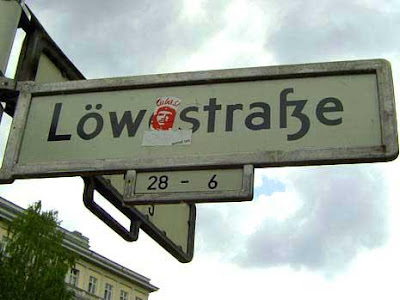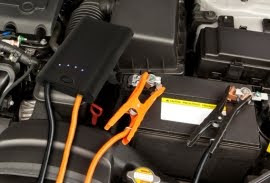I have decided to dedicate some entries to German inventors. After all I am German, that´s my heritage (though it´s partly Belgian too...) and some Germans have invented things that make our life so much easier and deserve to be talked about.
For example, did you know that the washing machine was invented by a German? Or that x-rays were discovered by my ancestors? Those are just 2 in an impressively long list of German inventions.
Though it looks like most famous Germans are men there are some amazing women too who must not be forgotten about. This is why I will dedicate my first entry to a most remarkable woman who plays probably
the most important part in my daily life. There is not a day my subconscious doesn´t think of her. It´s a love affair I have had since I first got my hands on it and it is something I can not live without. We are of course talking about...coffee!
Melitta Bentz
Melitta Bentz invented the coffee filter in 1908. As a housewife, Bentz found that
percolators were prone to over-brewing the coffee, espresso-type machines at the time tended to leave grounds in the drink, and linen bag filters were tiresome to clean. She experimented with various means, but ended up using
blotting paper from the school exercise-book of her son Willi and a brass pot perforated using a nail.
The Kaiserliche Patentamt (Imperial Patent Office) granted her a patent on June 20, 1908, and on December 15, the company was entered into the commercial register with 73
Pfennig as "M. Bentz." After contracting a tinsmith to manufacture the devices, they sold 1,200 coffee filters at the 1909 Leipzig fair.
Her husband Hugo and their sons Horst and Willi were the first employees of the emerging company. In 1910, the company won a gold medal at the International Health Exhibition and a silver medal at the Saxon Innkeepers' Association.
When the Great War erupted, metals were requisitioned for use in zeppelin construction, her husband was conscripted to Romania, paper was rationed, and eventually coffee bean imports were banned, disrupting the normal business. During this time she supported herself by selling cartons.
Continuing expansion caused them to move their business several times in Dresden. By 1927 the demand for the products was so high that the 80 workers had to work in a double-shift system. Because in Dresden no production facilities were found adequate, the fast-growing company moved in 1929 to Minden in the east of Westphalia. By that time 100,000 filters had been produced.
Horst took over the company, now "Bentz & Sohn," in 1930. She transferred the majority stake in Melitta-Werke Aktiengesellschaft to Horst and Willy in 1932, but kept a hand in the business, ensuring that the employees were cared for, offering Christmas bonuses, increasing vacation days from 6 to 15 days per year, and reducing the working week to 5 days. Bentz fostered the company's “Melitta Aid” system, a social fund for company employees.
After the outbreak of World War II, production stopped and the company was ordered to produce goods to aid the war effort. At the conclusion of war, the workers relocated for a time to old factories, barracks, even pubs, because the surviving portions of the main factory had been requisitioned as a provisional administration for the Allied troops, a condition that held for twelve years. By 1948, production of filters and paper had resumed, and at the time of her death at Holzhausen at Porta Westfalica in 1950, the company had reached 4.7 million Deutsche marks.
There is probably no household in Germany which doesn´t use the Melitta Filter. Brits however (still) seem to prefer the so-called cafetiere. Probably because cafetiere sounds better than filter. The problem with the cafetiere is that you have to be really careful when pressing the filter down. If you overfill the press or press the plunger too aggressively, water can splash out and scald you. Not to mention the mess it can cause...
There is even a
wikiHow entry dedicted to the proper usage of a cafetiere. In 12 (!) steps it demonstrates what you should or shouldn´t do in order to get a proper cup of coffee. If that´s not complicated enough watch out and pay attention to the
Warnings. If you don´t use it properly it can hurt you badly.
Needless to say that this is the last thing one needs first thing in the morning - even before the famous first cup of coffee which gets your braincells going. Isn´t it funny - you need a coffee before you can even figure out how to use the cafetiere but then you have to make the coffee first... :)
Life is
so much easier with the sweet Melitta Filter. The Melitta filter doesn´t need any instructions because it´s pretty straightforward and coffee can be made in 3 easy steps:
1. Add paperfilter to plastic filter

2. Place coffee grounds in filter
3. Pour boiling water over it and wait
No need for fancy measurements (cafetiere: 5 tablespoons to 1.4 L - 48 oz or 6 cups - WTF!) - (Melitta: 1 tablespoon per cup on a normal day, 2 when you´ve got a hangover...). Even the cleaning is easy as a pie: just take the paper filter out when you´re done and throw it in the bin. It doesn´t block the sink and both the filter and the coffee grounds are environment friendly (imagine the amount of water you need just to clean the cafetiere). And let´s not forget the money you have to pay for the plumber who has to unblock your sink...
I have spent weeks trying to find the pictured filter in Brighton. Eventually my mum had mercy and sent me one of hers. Actually she sent me 2 in different sizes. The large version is safely stored away in my kitchen and heavily guarded (my flatmate seems to show interest...) - the smaller one is at work so I can have that proper cup of coffee before I start my day in the office.
Most of my colleagues have (until recently) used the cafetiere. There seem to have been some issues with it (needless to say it amused me) and an expensive coffee filter machine was bought. So far so good. The coffee machine was tricky though - adding too much water caused a Monday morning disaster (tiwce!) and slowly but surely people come to realize that Melitta is still the best, the fastest and the easiest to use. So far I have managed to convert 3 of my colleagues to
Melittaism. It makes me smile every day I see them using it. The stubborn ones will follow soon...you know who you are!
Thank you Melitta Bentz!

















































